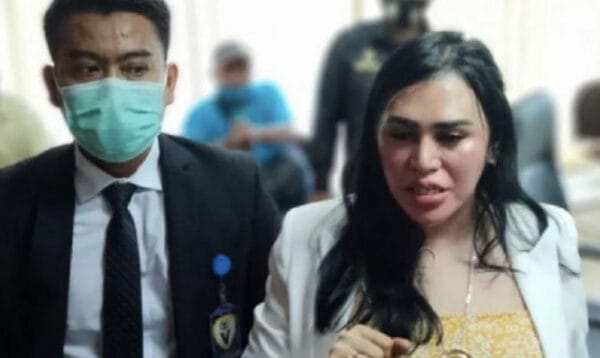A trans woman’s prison sentence for ‘insulting’ Jesus must be quashed, Amnesty International has said
A trans woman’s prison sentence for ‘insulting’ Jesus must be quashed, Amnesty International has said. On 10 March, a district court in Indonesia found Ratu Thalisa, known online as Ratu Entok, guilty of spreading hate speech against Christianity. The court also ordered her to pay a fine of 100,00

A trans woman’s prison sentence for ‘insulting’ Jesus must be quashed, Amnesty International has said.
On 10 March, a district court in Indonesia found Ratu Thalisa, known online as Ratu Entok, guilty of spreading hate speech against Christianity. The court also ordered her to pay a fine of 100,000,000 IDR (£4,700).
The conviction relates to comments Thalisa made on 2 October 2024 responding to a TikTok viewer who asked her to cut her hair like a man’s.
In response, Thalisa went live on her TikTok channel, which has about 442,000 followers, holding a picture of Jesus Christ. She said, “You should not look like a woman. You should cut your hair so that you will look like his father,” referring to the father of her viewer.
On 4 October 2024, five Christian groups filed a complaint to the police for blasphemy, prompting the police to arrest Thalisa.

Responding to the two-year-and-10-month prison sentence for hate speech against Christianity handed to Thalisa, Amnesty International Indonesia’s Executive Director Usman Hamid said: “This prison sentence is a shocking attack on Ratu Thalisa’s freedom of expression. The Indonesian authorities should not use the country’s Electronic Information and Transactions (EIT) law to punish people for comments made on social media.
“While Indonesia should prohibit the advocacy of religious hatred that constitutes incitement to discrimination, hostility or violence, Ratu Thalisa’s speech act does not reach that threshold.
“This sentence highlights the increasingly arbitrary and repressive application of Indonesia’s EIT law to violate freedom of expression. The authorities must quash Ratu Thalisa’s conviction, ensure her immediate and unconditional release and repeal or make substantial revisions of problematic provisions in the EIT Law criminalising “immorality,” defamation, and hate speech.”
Support independent LGBTQ+ journalism
Scene was founded in Brighton in 1993, at a time when news stories about Pride protests were considered radical. Since then, Scene has remained proudly independent, building a platform for queer voices. Every subscription helps us to report on the stories that matter to LGBTQ+ people across the UK and beyond.
Your support funds our journalists and contributes to Pride Community Foundation’s grant-making and policy work.
Subscribe today




Comments ()